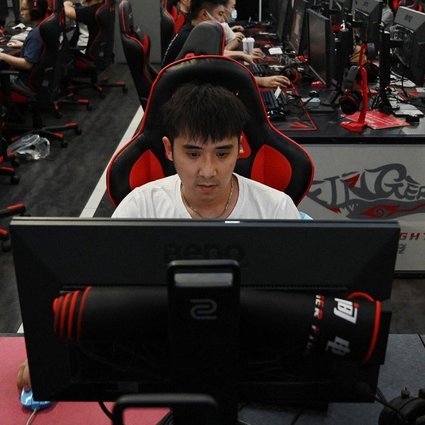THE STATE AS INTERNET POLICE
By Femi Olugbile
It was announced in the news recently that China has decided to restrict further the number of hours that Chinese children spend on the internet.
From 2019, there had been a rule, set by the National Press Publication Administration, that players under the age of eighteen years were limited to a maximum of ninety minutes of video games on weekdays and three hours a day on weekends.
According to the government, many parents complained that the permitted hours were too ‘generous’ and that the government was not sufficiently scrupulous in enforcing the restrictions. This, to them, provided the justification for new, tighter regulations. Henceforth, the youths are only allowed to play video games on the internet from 8pm to 9 pm on Fridays, Saturdays and Sundays.
Government also announced that it would increase its surveillance on gaming companies to ensure that they are obeying the law.
There are two issues that need to be highlighted here. One is that the Chinese love video games, and gambling.
The second issue is that the Chinese Communist Party believe there are some influences on the internet which are unhealthy for the discipline and good behaviour of children.
Many members of the public agree with the government that children become unruly and difficult for their parents to manage when they spend a lot of time playing games on the internet or playing on the Douyin, the Chinese equivalent of TikTok.
Many people, of course, disagree with the government on the matter, seeing it as an overreach, and an unwarranted encroachment on family life. They see it as way In which ‘big government’, and specifically the Communist Party, is trying to tighten control on every aspect of their lives. It is not only in China that parents have had cause to worry about the amount of time their children spend on the internet. It is a well-known fact that in several parts of Europe, as in America, and even in many homes in Nigeria, teenagers are on the internet almost all the time while they are at home. Their time is divided between social media and video games. Parents complain they hardly ever get to see their children, as they always seem to be engrossed in ‘chatting’ with their virtual ‘friends’. The amount of time they spend with their real-time friends is limited as a result. The internet, as far as the youths are concerned is a major blessing, as well as a potential curse. It has made it possible to ‘jazz up’ school work so that even the most boring subject can be made to look and sound interesting, thereby retaining the attention of students for a longer period. It has made it possible for the classroom to be taken outside the four walls of the schoolroom, and introduced a higher level of creativity, flexibility and interactivity to learning. To many students now, learning is fun. It is hard to imagine what life would have been like for households during the recent protracted lock-down caused by the COVID19 pandemic if there had been no internet. While parents worked from home, their children were kept busy with virtual classroom work, at least in those places where they could afford broadband infrastructure. The potential for internet to be a curse lies in the fact that in the same way that it could ‘jazz up’ schoolwork, it could also become a distraction or even a total replacement for it. Young people have been known to spend whole nights tapping away at their smart phones or computer keyboards. In many homes it is a source of acrimony and a platform for efforts to exert parental discipline. Some parents simply take away their children’s phones when they step out of line, or allow them to have access only during certain hours. In the Western world where children’s rights are much emphasized, such action may be seen by some as an affront on the rights of youth. Parents sometimes find themselves having to negotiate with their children and strike a deal. All too often the deal is observed in the breach. There may well be a few parents in the UK, for example, who are looking wistfully towards China and wishing their own governments could use executive fiat to win the battle of the internet for them, and save them the unpleasantness of repeated shouting matches with their teenage sons and daughters. It would not be ‘democratic’, and certainly not ‘woke’, to admit to such sentiments, and the owners of such thoughts would probably take care to keep them to themselves. China is a country where government has always given itself the right, without apology, to control the lives of its citizens. There is a strong emphasis in Chinese culture about the need for citizens to obey the law, and for children to obey their parents. Communism, with its penchant for regimentation has found fertile ground in the Chinese character. To be fair, the system, with its latter-day modifications, has brought economic prosperity and a sense of stability to the polity. There is a growing number of extremely wealthy Chinese and a middle class of sorts who are able to go on holidays to foreign places and display their spending power. That the state has developed the greatest capability in the world to restrict the news and monitor the internet traffic to all its citizens, young and old, may seem to some to be a small price to pay for all the state is giving in return. At the bottom line is the question – who should lay down the law for the child and the adolescent? Is it the parents, who are not doing a particularly good job of it in much of the world? Or the state, which is overreaching and intruding into parenting in China?

